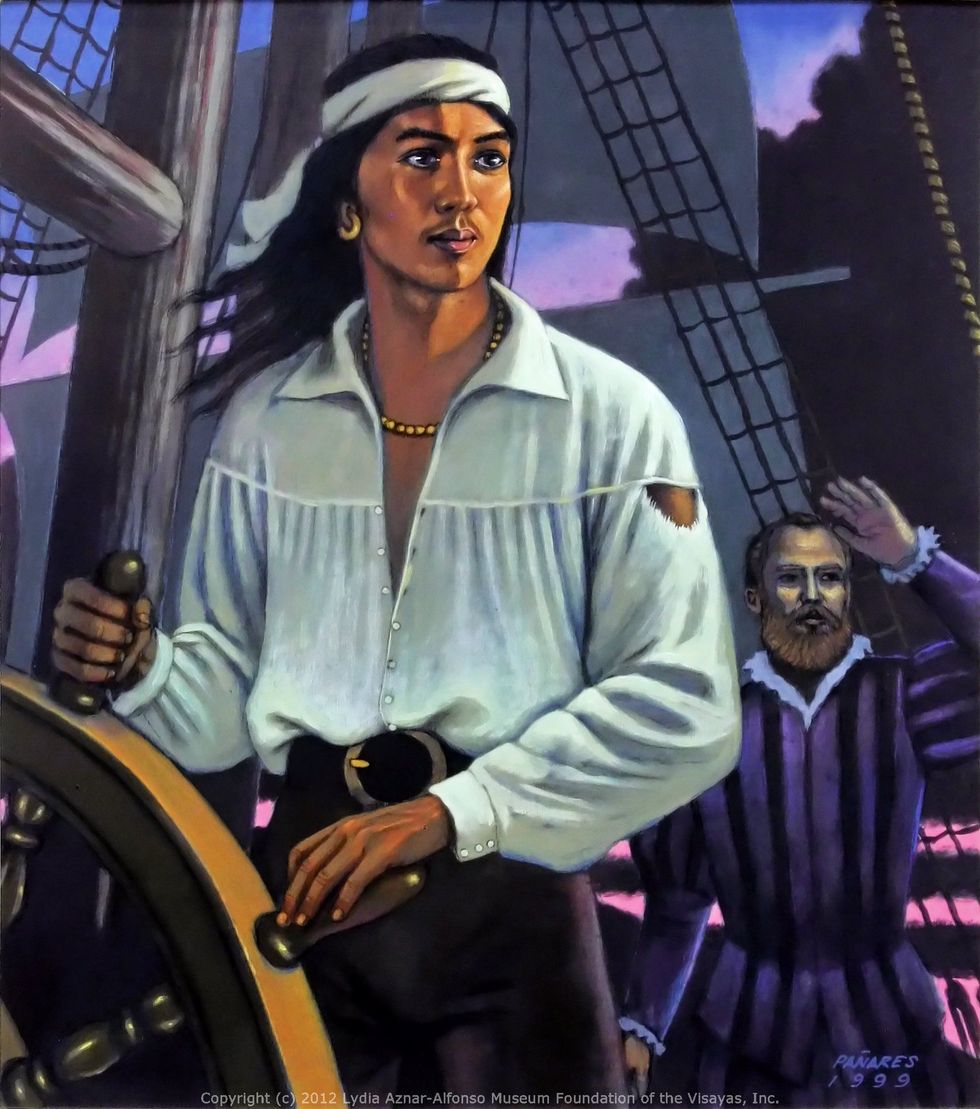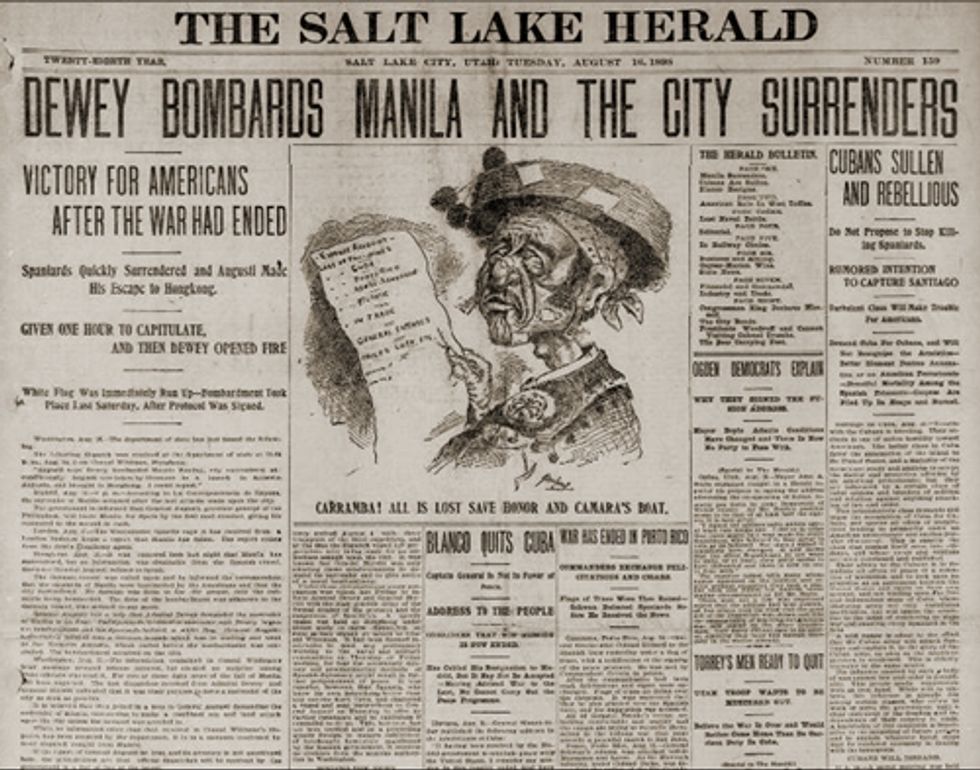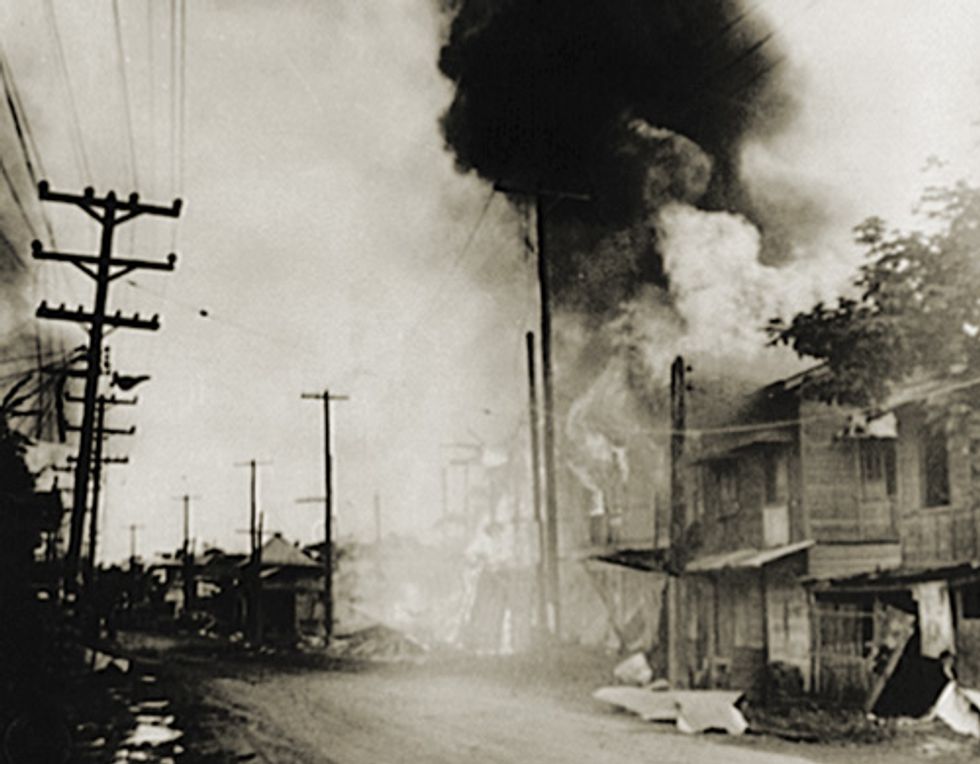Today, Filipino and English are the official languages of the Philippines. Everybody knows that Filipino culture has heavy Spanish-influence in it, starting from the term Filipino, which in of itself, is already a Spanish term. It is also has heavy Chinese and native Pacific cultural influence in it, officially making it a "mut culture".
Filipinos have Spanish names, give their foods (which many are actually Chinese and Malay-influenced dishes) Spanish names, towns, cities and even terminologies.
Yet, there is one thing that boggles many people, why don't Filipinos speak Spanish? We might as well, right?
I'd actually agree with that, while I absolutely despise this entire "Latino" psuedo-identity among Filipinos as I've pretty much well-stated in this article, I do support the embracing of the Spanish language among Filipinos.
My great grandmother was a fluent Spanish-speaker, though I never met her as she passed on from this earthly plane long ago, even before I brought into this world.
After all, our constitution and historical documents were written in Spanish, the revolutionaries that would eventually free the Philippine Archipelago from Spaniard rule were all fluent Spanish-speakers.
So the question once, more, why don't Filipinos, be it in the Philippines or abroad speak Spanish?
We'd have to dissect this issue by observing the history of the Philippines.
Philippines Before Spaniard Rule
In 1521 when the Spanish and European conquistadors, and their Catholic missionaries stepped foot in the archipelago, they could not converse with the natives in Spanish, since well.....the natives spoke Old Malay as their second language. Ferdinand Magellan had to use a Malaysian slave by the name of Enrique (a name he gave to the guy), to converse and translate between Malay and Spanish/Portuguese.
Spanish Philippines
Over the centuries, only the most prestige and Christianized regions of the Philippines were Spanish-speaking. However, the language became well-known throughout the archipelago. The most Hispanized regions of the Philippines were particularly the governing centers, such as Manila and Cebu. This explains the predominance of Spanish words in Tagalog and Cebuano.
By the late 1800s as the days of Spanish rule in the Philippines waned, the Spanish Crown authorized for the teaching of Spanish to ALL peoples of the Philippines, rich or poor.
Americanization: 1st Phase of Downfall
In 1898, the Americans wrestled control of the Philippines from Spain. It is at this point when Spanish language and culture in the Philippines met its first episode of downfall.
The Americans, who were Baptists of English descent (Protestant England, to which Protestant America is a direct child of, and Catholic Spain, were bitter enemies), absolutely HATED Spanish and Catholic culture. American missionaries in the Philippines worked to convert many of the Catholics to Baptist faiths.
This is why today, while the Philippines still stands out a Catholic nation, the country has MANY Protestant and Baptist faiths and off-shoots of Protestantism in the nation. The Iglesia ni Cristo, is a Protestant-based church in the Philippines.
My dad's side of the family came from Methodist background. While I believe many of them have converted to Roman Catholicism, my uncle in the Philippines and his family are still Methodists.
In addition, Filipino nationalists worked to further destroy Spanish culture, perceiving anything to do with it as evil.
World War II: Japanese Invasion & 2nd Phase of Downfall
By the time the Japanese invaded the Philippines in 1941, Spanish was still one of the predominant language spoken in the archipelago, along with Tagalog and English. This would begin the second, and probably most destructive episode of Spanish influence in the Philippines.
During the various Japanese attacks and bombings of Philippine cities, many Spanish-speaking Filipinos died. This left Tagalog and English to be the predominant languages of the Philippines.
Nationalism & 3rd Phase of Downfall
In the 1960s-1980s, would mark the third and final destruction and downfall of the official status of Spanish language in the Philippines. In 1973, Spanish was stripped off of its official status, re-instated a few months later, and finally abolished in 1983.
The Solution
So what do I think should happen?
Don't get me wrong, on one end - I absolutely despise the Spanish Empire for separating the people of the Philippines from their counterparts in Malaysia, Indonesia and Brunei for the peoples of three countries are in a sense, our "true" bloodline brethren.
On another end, our Constitution and many of the historical documents that paved the way for modern-day Philippines were written in Spanish, and a Spanish-speaking Philippines would have the Philippines stand out with its own unique culture among the Asian countries.
I think what should happen is that rather than Standard Spanish, Philippine Spanish should be revived and nationalized. I'd also support a nationalizing of some descendant of Old Malay (Modern Malay has many Arabic words, it wouldn't make sense for a Catholic nation to be using terms like "Allah" or "Kitab").
EDUCATION is the key here, Filipinos need to be educated nationwide in their country, IN SPANISH and make it compulsory in schools. It won't be done overnight, nothing is an overnight solution, however once the seeds are planted, it'll gradually become part of everyday Filipino conversation.























